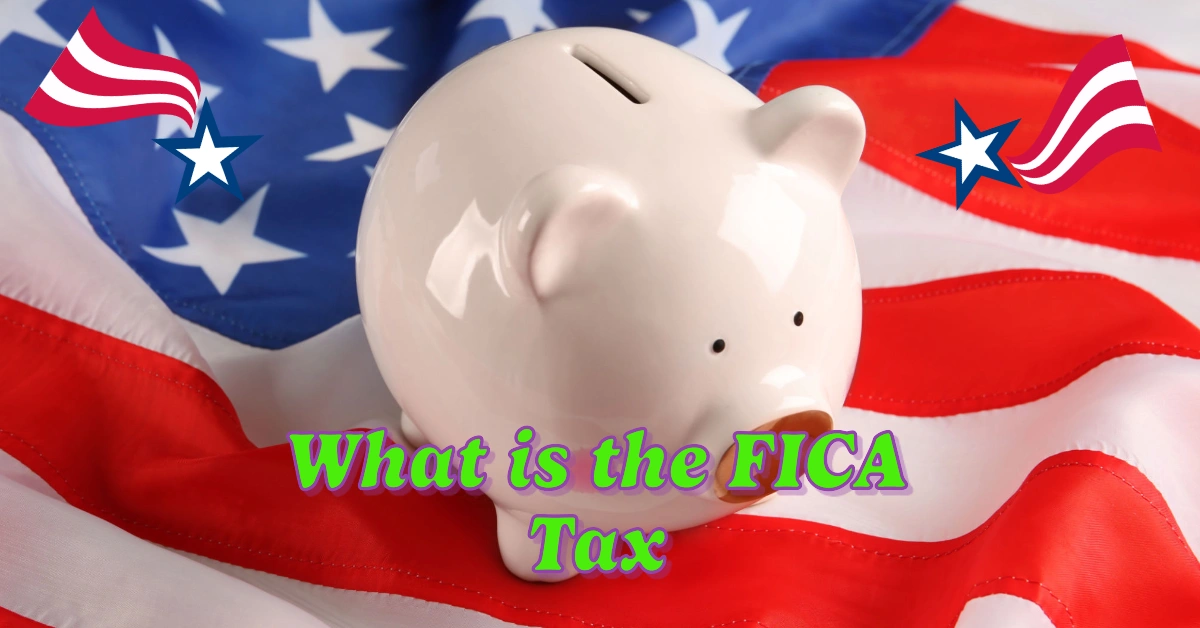Every month, as workers in the United States receive their paychecks, they notice a variety of deductions that reduce their take-home pay. One of the most important yet often misunderstood deductions is the FICA tax. While it might seem complex at first, the FICA tax plays a vital role in ensuring the long-term economic security of workers and their families. It directly supports two essential programs—Social Security and Medicare—that provide crucial benefits during retirement, in case of disability, or in the event of unforeseen circumstances.
Table of Contents
In this article, we’ll explore how the FICA tax works, how it affects your paycheck, and the various exemptions or ways to reduce this tax burden.
What is the FICA Tax?
The FICA tax stands for the Federal Insurance Contributions Act and is a mandatory tax that helps fund two key U.S. programs: Social Security and Medicare. This tax is collected through paycheck deductions and is split between the employee and their employer.
Here’s a breakdown of the FICA tax:
- Social Security: A 6.2% tax is deducted from your salary to fund Social Security benefits, which include monthly payments to retirees, individuals with disabilities, and survivors of deceased workers.
- Medicare: A 1.45% tax is applied to your salary to fund Medicare, which provides health coverage for people aged 65 and older, as well as individuals with certain disabilities.
- Additional Medicare Tax: For individuals who earn more than $200,000 annually (or $250,000 for married couples), an additional 0.9% tax is applied for Medicare.
Together, these deductions add up to 7.65% of your gross income. Employers match this contribution, so the total FICA tax contribution is 15.3% of your salary.
Self-employed workers have a unique situation, as they are required to pay both the employee’s and the employer’s share of the tax, totaling 15.3%.
Social Security Shake-Up: Major Changes Coming in 2025 — Are You Affected?
Big News for Retirees and Seniors: Bigger Social Security Checks Are Coming in January!
Double SSI Payments in December 2024: How to Maximize Your Benefits and Enjoy the 2025 COLA Increase
Why Does the FICA Tax Matter?
The FICA tax ensures that the U.S. social security system remains funded, providing financial stability for retirees and access to healthcare for senior citizens and people with disabilities. While the deductions might feel like a financial burden now, the tax is essentially an investment in your future well-being.
- Social Security Benefits: The Social Security portion of the FICA tax helps provide a safety net for those who can no longer work due to age or disability. It also supports survivors’ benefits for spouses and dependent children of deceased workers.
- Medicare Coverage: The Medicare portion helps provide health coverage for those aged 65 and over, ensuring that older Americans have access to essential healthcare services.
Can You Save on FICA Taxes?
While the FICA tax is mandatory for most workers, there are some situations where workers might be able to reduce or avoid these contributions:
Exemptions and Reduced Tax Scenarios
- Students Employed by Their College or University: Students working at educational institutions where they also study may be exempt from FICA taxes.
- Employees of Foreign Governments: Workers employed by international government agencies may not be subject to FICA taxes.
- Religious Organizations: Certain religious institutions may claim exemption from these taxes, depending on their structure.
However, for most workers, reducing or avoiding the FICA tax is not possible. The tax is an essential part of the U.S. social protection programs and is required by law for the vast majority of employees.
Self-Employed Workers and Deductions
For self-employed individuals, while they must cover the full 15.3% tax, there are ways to alleviate the financial burden. Self-employed workers can deduct certain business expenses on their tax returns, reducing the overall taxable income and, as a result, the impact of the FICA tax.
3 Surprising Constants About Social Security in 2025 That Retirees Need to Know
Will Disability Payments Reflect the 2025 COLA Before Christmas
Planning for the Future: Why FICA Tax Matters
The FICA tax may seem like a financial setback in the short term, but its long-term benefits cannot be understated. It funds two vital programs—Social Security and Medicare—that provide a safety net for millions of Americans.
Understanding how the FICA tax works and the potential exemptions can help you plan better financially. It also provides peace of mind, knowing that this deduction is helping to ensure your financial security in retirement or if you face unforeseen health challenges.
$300 Social Security Monthly Boost Confirmed in 2025: Here’s What You Need to Know
Key Takeaways:
- The FICA tax funds Social Security and Medicare programs, providing vital support for retirees, people with disabilities, and seniors.
- Employees pay 7.65% of their salary in FICA taxes, with employers matching this amount. Self-employed workers pay the full 15.3%.
- There are some exemptions for students, employees of foreign governments, and certain religious institutions.
- Self-employed individuals can reduce their taxable income through business expense deductions.
While the FICA tax might feel like a deduction that cuts into your paycheck, it’s an essential contribution to securing your financial future. Understanding it can help you make better decisions about your finances and retirement planning.

One thought on “Social Security: What is the FICA Tax and How It Impacts Your Paycheck: A Complete Breakdown”